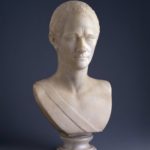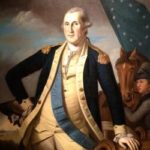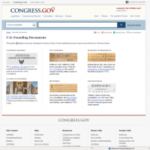In a five-minute video, federal judges offer insights into their thinking about the separation of powers and describe how healthy tensions among the branches have a stabilizing effect on democracy. The judges also share their respect for and commitment to this founding principle, which has an impact on everyday American life.
Founding Documents: Federalist and Anti-Federalist Papers Podcast
Ten days after the Constitution was signed at the Old Philadelphia State House, an anonymous op-ed appeared in the New York Journal. Signed by “”Cato,” it cautioned readers of the new Constitution to take it with a grain of salt. Even the wisest of men, it warned, can make mistakes. This launched a public debate that would last months, pitting pro-Constitution Federalists against Constitution-wary Anti-Federalists. It was a battle for ratification, and it resulted in a glimpse into the minds of our Framers – and a concession that would come to define American identity.
Our guides through the minds of the Federalists and Anti-Federalists are Claire Griffin and Cheryl Cook-Kallio.
This short episode includes a one-page Graphic Organizer for students to take notes on while listening, as well as discussion questions on the back side.
Reconstruction and The American Founding
Explore primary source documents in the ConSource digital library to see how the provisions of the 13th, 14th, and 15th amendments are connected to the issues and debates discussed during the revolutionary and constitutional periods.
Hamilton: An American Musical Resources

Alexander Hamilton, Founding Father and Broadway star, clashed with Thomas Jefferson politically and morally. But both figures were essential to the founding of the United States of America. Check out this page for resources on Jefferson, Hamilton, and other main players from the Broadway musical “Hamilton: An American Musical.”
United States Founding Documents
Choosing to Make a Nation: Constitutional Convention Simulation
The Choosing to Make a Nation Curriculum Project developed by award-winning author Ray Raphael is a student-centered, primary source-rich approach to teaching about American history and our nation‘s founding documents.
An 8-lesson simulation in which students become delegates from specific states and address the same issues the framers faced. Unit includes the following lesson plans –
(1) Reform or Revolution?
(2) Composition of Congress
(3) Creating an Executive Branch
(4) Should Judges Judge Laws?
(5) Balance of Powers
(6) Slavery and the Constitution
(7) Amendments and Ratification
(8) To Sign or Not to Sign?
Option A: The historical Constitution
Option B: Student-generated constitution
Choosing to Make a Nation: Interactive Lessons on the Revolution, Constitution, and Bill of Rights
The Choosing to Make a Nation Curriculum Project developed by award-winning author Ray Raphael is a student-centered, primary source-rich approach to teaching about American history and our nation‘s founding documents. The lesson plans are based on the idea that history is the chronicle of choices made by actors/agents/protagonists in specific contexts. Students understand choices – they make them all the time. These lessons involve students by placing them in the shoes of historical people and asking: “What might you do in such instances?”
Slavery and the American Founding: The “Inconsistency Not to Be Excused”
Declaration Revisited: Black Americans Podcast
This is the first of three revisits to the Declaration of Independence; three communities to which the tenets of life, liberty, and the pursuit of happiness did not apply. Byron Williams, author of The Radical Declaration, walks us through how enslaved Americans and Black Americans pushed against the document from the very beginning of our nation’s founding.
This short episode includes a one-page Graphic Organizer for students to take notes on while listening, as well as discussion questions on the back side.
Celebrating the Founders

This short video explores why Americans celebrate the Founding generation. Americans point to a “founding moment” and, from the country’s earliest days, celebrated this “moment” on July 4. The first individuals to be honored were military leaders like George Washington; later, individuals who created the nation’s government were celebrated. Professor Daniel Dreisbach draws parallels between the commemoration of Washington as “Father” of the country and Moses as “Father” of the Hebrew nation.

